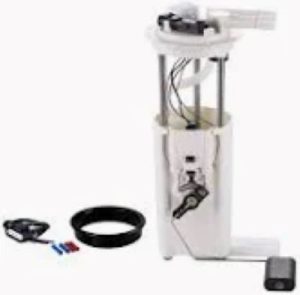Fuel pumps can burn out for several reasons; they most commonly break down due to overheating, running on low fuel levels (less than one quarter of a tank) electrical issues or clogged up fuel filters. The truth is, running around on empty is one of the number one reasons that fuel pumps fail; so keeping your tank at least a little full is crucial for pump function. Gasoline cools and lubricates fuel pump components, when the level is too low, the pump can overheat. The 2019 AAA report stated that fuel pump failures due to overheating were responsible for almost 12% of the vehicle breakdowns linked to problems with the fuel system.
For instance, high-temperature locations or a clogged fuel filter forcing the pump to work harder can lead to overheating. A clogged filter constricts flow, forcing the pump to operate closer to its rated odometer than it was designed for. This extra load gradually increases the temperature of the pump, which leads to premature wear over time. As advised by most of the vehicle manufacturers, replacing the fuel filter every 30,000 to 40,000 miles avoids this problem.
Electrical failure: Another common reason for burnouts is an electrical failure. The fuel pump is an electrically driven component and wiring issues, bad connections or the absence of a proper functioning fuel pump relay can prevent it from getting any electricity. Ultimately, the pump itself will stop working as efficiently (if at all) as it should simply because of overwork. The National Institute for Automotive Service Excellence (ASE) said that electrical problems within the fuel system account for roughly 7% of all fuel pump failures.

An engine can also damage a fuel pump when contaminated fuel is used. The water, dirt or debris in the fuel can harm the pump internal components which reduces their efficiency and in result, it significantly shortens the life of these pumps. For example, a 2020 Consumer Reports story attributed fuel contamination as one of the big culprits behind reducing the lifespan of fuel pumps, especially in areas where quality standards for fuels are not enforced.
A bad fuel pressure regulator being used for too long also has the potential to burn out a pump. The pump is then forced to increase output to offset the imbalance the regulator is supposed to maintain with correct pressure. Fuel-injected systems typically require pressures from 40 to 70 psi, and if the system runs too lean or rich for a lengthy duration of time due to an incorrect regulated psi, it can cause fuel pump failure.
As Elon Musk, CEO of Tesla once said, "Any system pushed to its limit without fail causes the end. This translates over to fuel pumps, and you can certainly make them last longer with some careful maintenance and observing your petrol levels in detail.
To sum it up, for a bad fuel pump to die (not your fault), it either dies of heat stress from low fuel levels, clogged filters, electrical problems (eg., vehicle wiring short) or running degenerate fuel. Preventive maintenance and monitoring fuel levels are the key factors to avoid early pump failure. To learn more about how to diagnose and install your fuel pump, visit Fuel Pump.